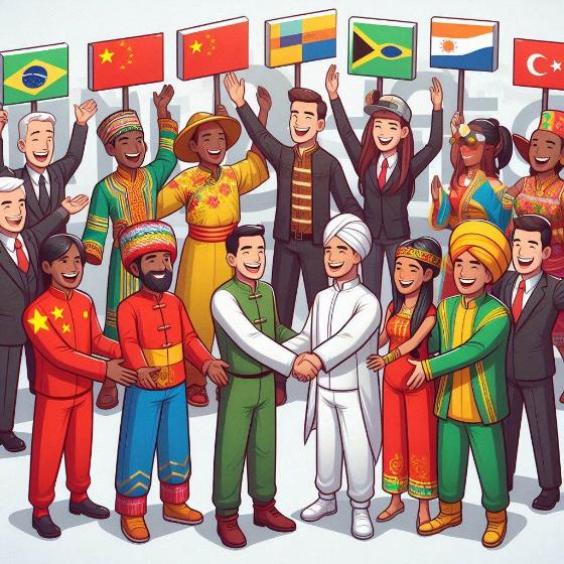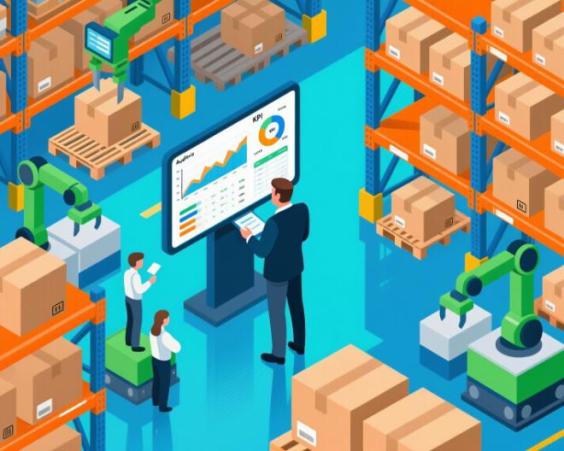The BRICS: A Commercial Hope for Marginalized Countries
In a world that is increasingly interconnected, economic blocs play a crucial role in trade relations and the development of nations. One of the most promising, yet least understood, blocs is the group known as BRICS, which brings together five emerging powers: Brazil, Russia, India, China, and South Africa. These countries, which together represent nearly 40% of the world's population and more than 25% of global GDP, have consolidated as a key group in international trade, particularly for marginalized and developing countries.
1. A Group Open to New Members
Unlike other more exclusive economic blocs, the BRICS are characterized by their openness to new members. It is not a closed organization nor an elite club. In fact, in recent years, they have expressed their interest in expanding, inviting other countries to join their initiative. Countries in Africa, Latin America, and Asia, which are often excluded or marginalized from major global economic agreements, see in the BRICS a commercial hope and an opportunity to integrate into a more equitable economy.
It is important to note that the BRICS do not align with bellicose or armament interests. It is not a military alliance, nor do they seek to compete in terms of military might with other global organizations. Their focus is solely on trade, economic cooperation, and mutual development. In this sense, the group has been a catalyst for many developing nations to access markets and opportunities that would otherwise be denied to them.
2. The Power of Unity: Challenging Marginalization
The creation of the BRICS is a clear example of what can happen when the marginalized unite. These five countries, throughout their history, have faced various levels of exclusion or pressure from the major economic powers. However, by joining forces, they have managed to consolidate their position in international trade and have offered an alternative platform for those countries seeking to escape the limitations imposed by traditional global trade systems.
This bloc has developed an economic vision oriented towards cooperation and mutual benefit, promoting inclusive and sustainable growth, particularly in regions that have been neglected by Western commercial agreements. The BRICS offer an exit for those seeking to diversify their trade relations and not depend exclusively on an economic system dominated by the major Western powers.
3. A Global Currency: An Extra Weight in the World Market
One of the most ambitious projects that the BRICS have in development is the creation of their own currency. Although this effort is still under discussion, the introduction of a common currency among the BRICS could have a significant impact on the world market. Currently, many international trade transactions are made in US dollars, giving the US disproportionate control over global trade.
With their own currency, the BRICS would be challenging this monopoly, offering an alternative for international transactions. This new currency could be used not only by the member countries of the bloc but also by developing countries that feel marginalized or dependent on the Western financial system.
This move has the potential to redistribute economic power in the world, providing an additional option for countries to conduct trade without the restrictions and fluctuations linked to dependence on the dollar. Although it has not yet been officially launched, the creation of a BRICS currency sends a clear message: marginalized countries have options, and these options can change the balance of global economic power.
4. An Opportunity for Excluded Countries
The BRICS are not just an association of emerging countries with large economies. They are an open collaboration platform, willing to give voice and space to those who have been excluded from the dominant global economic system. In a world where traditional powers have dominated the rules of the game, the BRICS offer a hope for countries seeking greater autonomy and access to new markets.
This does not mean that the BRICS are a perfect solution or a panacea for the economic problems of developing countries. However, they offer a viable alternative, based on mutual cooperation, equal opportunities, and respect for the sovereignty of each country.
5. Trade, Not War
As the world faces growing geopolitical tensions, it is reassuring to see that the BRICS focus on trade, not war. This economic bloc represents a commercial hope for marginalized countries, providing a path to integrate into the global economy without depending on traditional major powers. The BRICS are demonstrating that, when marginalized countries unite, they can create a significant economic power bloc, capable of challenging the status quo and offering new opportunities for global economic development and growth.
In the coming years, with the possible introduction of their own currency and their continued expansion, the BRICS could further consolidate as a key player in the redistribution of global economic power, providing real opportunities for countries that have been excluded from the global stage.





